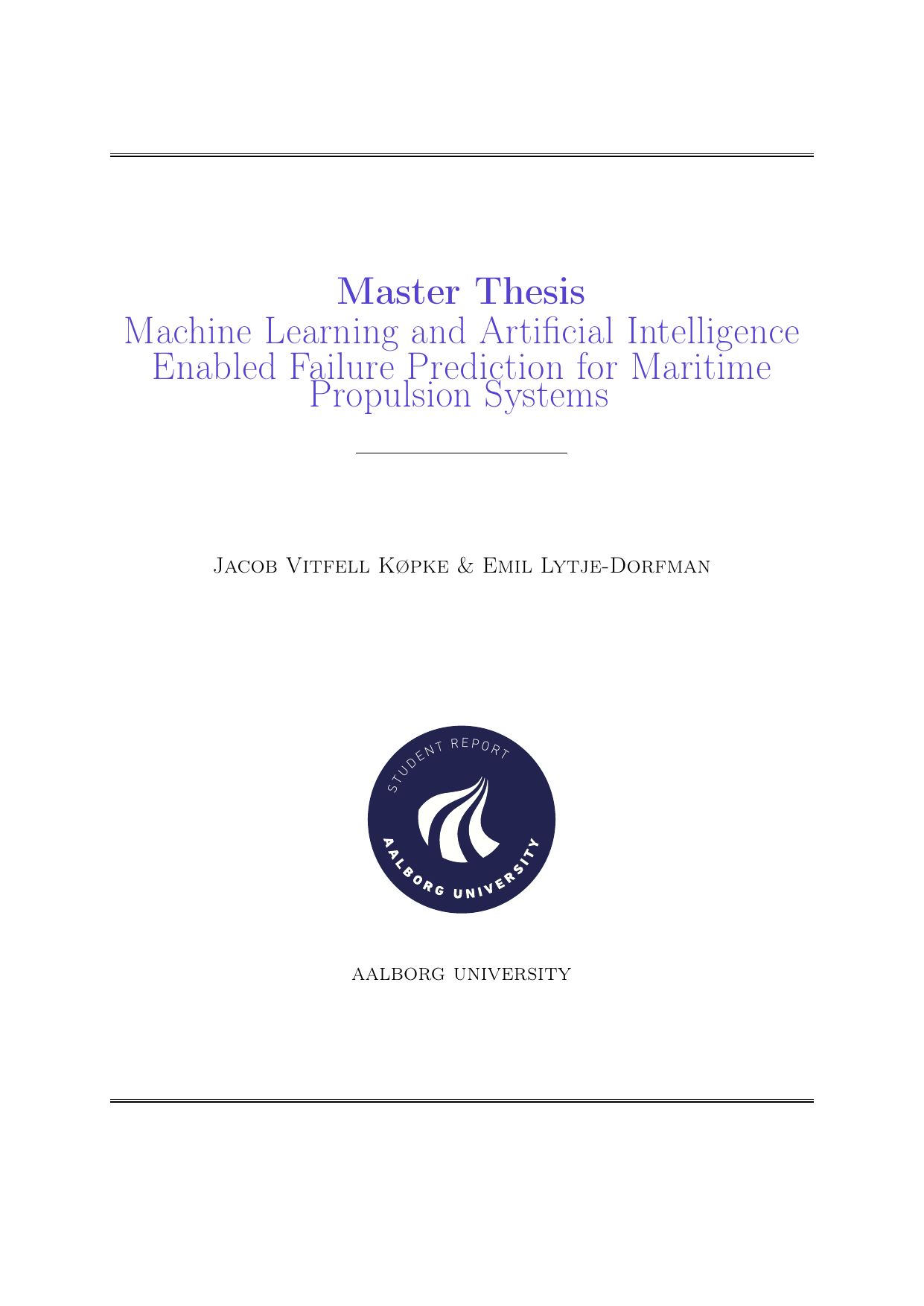
Machine Learning and Artificial Intelligence Enabled Failure Prediction for Maritime Propulsion Systems
Authors
Term
4. semester
Education
Publication year
2025
Submitted on
2025-06-04
Pages
118
Abstract
This thesis investigates the application of machine learning (ML) and artificial intelligence (AI) techniques for failure prediction in maritime propulsion systems, with a focus on two critical failures observed in MAN Energy Solutions’ engines: accumulator membrane fail- ure in sequential two-stroke engines and pipe damage during methanol fuel changeover in dual-fuel systems. The thesis explores the feasibility of predictive maintenance through data-driven approaches, leveraging time series data collected from operational vessels and controlled test engines. A comprehensive feature engineering pipeline is developed to ad- dress challenges related to high dimensionality, feature redundancy, and class imbalance. Feature selection methods are applied to construct interpretable and task-relevant fea- ture subsets, resulting in insights into system behavior leading up to failure. Multiple ML and AI models, including Random Forests, 1D Convolutional Neural Networks (CNNs), and Long Short-Term Memory (LSTM) networks, are implemented and evaluated for both binary failure classification and remaining useful life (RUL) regression tasks, for different reading window (RW) and prediction window (PW) sizes. Here SMOTE and DTW-SMOTE has been used to augment data, increasing the data variance in training. Results demonstrate that methanol changeover failures are highly predictable, with Ran- dom Forest and 1D CNN models achieving strong performance with an accuracy of 91% for changeover classification and an R2 of 0.826 for changeover RUL prediction. In con- trast, accumulator failure prediction proves more challenging due to limited failure data and lower signal resolution with the 1D CNN providing the greatest accuracy of 71%. The findings highlight the importance of model selection, task-specific window sizing, and feature interpretability in predictive maintenance applications. The thesis concludes that ML and AI can be used for predicting pipe damage during methanol fuel changeover, while providing valuable insight into the system and the failure through feature engineer- ing. This task is slightly harder for accumulator membrane failure in sequential two-stroke engines, and further work is required to develop high performing and robust models for this purpose.
Keywords
Documents
